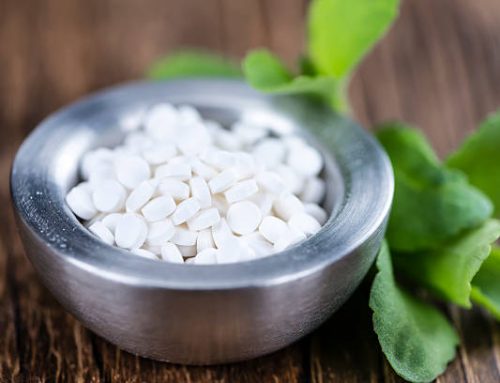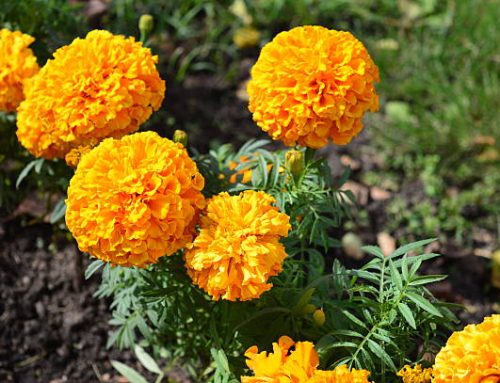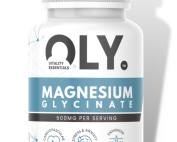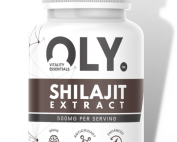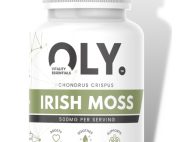Are you looking for a fresh and exciting way to spice up your meals while simultaneously boosting your health? Look no further than anise! This fragrant and lively herb is packed with a wide range of health benefits, from improved digestion to stress relief. Whether you’re a seasoned herbalist or simply a curious foodie, you won’t want to miss out on the diverse array of possibilities that anise has to offer. So let’s dive in and discover the vibrant flavor and powerful potential of this wonderful plant. Get ready to inspire your taste buds and nourish your body as we explore the wonders of anise together!

1. Spice up Your Life with Anise: A Closer Look at This Flavorful Herb
Are you looking for a new flavor to add to your dishes? Look no further than anise! This herbaceous plant adds a unique licorice-like flavor to any dish. Not only does anise taste amazing, but it also has a range of health benefits to keep you feeling your best.
What is Anise?
Anise, also known as Pimpinella anisum, is a flowering plant native to the Eastern Mediterranean and Southwest Asia. Its seeds are commonly used as a spice and have a distinct sweet, warm flavor reminiscent of licorice. Anise is a key ingredient in many traditional dishes, including Italian biscotti, Greek ouzo, and Indian chai tea.
Health Benefits of Anise
Anise is not just a flavorful addition to your meals – it also has a range of potential health benefits. Here are a few:
- Improves digestion: Anise has been traditionally used as a digestive aid, as it contains compounds that can help stimulate the production of digestive enzymes.
- Relieves coughs and congestion: Anise has been used in natural cough remedies for centuries. It contains compounds that help soothe coughs and reduce congestion.
- Contains antioxidants: Anise contains compounds such as anethole, quercetin, and luteolin, which have antioxidant properties. These compounds can help protect your body against damage from free radicals.
- May have antimicrobial properties: Anise has been shown to have antimicrobial properties, which means it may help fight off harmful bacteria and fungi.
Ways to Incorporate Anise Into Your Diet
Anise is a versatile herb that can be used in a variety of dishes. Here are a few ways to incorporate anise into your diet:
- Add anise to baked goods: Anise is a popular spice in many baked goods, such as biscotti and bread.
- Brew anise tea: Anise tea is a popular beverage in many countries and can be made by steeping anise seeds in hot water.
- Add anise to savory dishes: Anise can be added to soups, stews, and meat dishes to add a unique flavor.
- Sprinkle anise on top of fruit: Anise pairs well with fruits such as oranges, apples, and pears.
Whether you’re looking to spice up your cooking or add some new flavors to your diet, anise is a great choice. Not only is it delicious, but it also has a range of potential health benefits!
2. From Ancient Remedies to Modern Health: Unlocking the Nutritional Power of Anise
For centuries, anise has been used in traditional medicine around the world for its wide range of healing properties. From reducing inflammation to aiding digestion, this versatile herb has a lot to offer when it comes to promoting overall health and well-being.
One of the key benefits of anise is its ability to improve digestion. The seeds contain compounds that can help to stimulate the digestive system, making it easier for the body to process food and absorb nutrients. Anise is also known to have antimicrobial properties, which can help to eliminate harmful bacteria in the gut and promote a healthy balance of gut flora.
Another impressive benefit of anise is its ability to reduce inflammation in the body. This is due to its high concentration of antioxidants, which can help to neutralize free radicals and reduce oxidative stress. Anise has also been shown to have pain-relieving properties, making it a great natural remedy for conditions like arthritis and other chronic pain conditions.
When it comes to promoting respiratory health, anise is also an excellent choice. The herb has expectorant properties, which means that it can help to loosen mucus and phlegm in the respiratory tract, making it easier to breathe. It is also known to have anti-spasmodic properties, which can help to reduce coughing and other symptoms associated with respiratory conditions.
In addition to all of these impressive health benefits, anise is also a great source of key nutrients like iron, magnesium, and calcium. It is also low in calories and sugar, making it a great addition to a healthy diet.
Ways to Incorporate Anise into Your Diet
- Add a spoonful of anise seeds to your morning smoothie or oatmeal for a boost of flavor and nutrition.
- Brew a cup of anise tea by steeping a teaspoon of anise seeds in hot water for 5-10 minutes.
- Use anise seeds to flavor homemade soups and stews for a unique and healthy twist.
- Make anise-flavored desserts, like biscotti or pizzelle, for a sweet treat that also packs a nutritional punch.
The next time you’re looking for a natural way to boost your health and well-being, consider giving anise a try. With its wide range of impressive benefits and delicious flavor, this powerful herb has a lot to offer.
3. Anise in Your Diet: Why You Should Incorporate this Aromatic Herb into Your Meals
Anise is a popular herb that belongs to the parsley family. Its seeds, leaves, and stem has been used for thousands of years as a natural remedy for various illnesses. However, anise’s unique flavor and aroma make it a prized ingredient in cooking. From Greek and Italian cuisines to Middle Eastern and Mediterranean cuisine, you’ll find anise used to flavor bread, desserts, and confectionaries. Below are some reasons why you should consider including anise in your diet:
1. Enhances Digestion
Anise seeds contain essential oils that have potent anti-spasmodic and carminative effects on the digestive system. When you consume anise seeds, their oils stimulate the release of digestive juices, which helps in breaking down food more easily. As a result, you experience reduced bloating, gas, and constipation. Incorporating anise in your diet is an excellent way to improve overall digestion.
2. Lowers Risk of Chronic Diseases
Anise seed has various antioxidants that help fight free radical damage to the body. Free radicals are unstable molecules that can cause harm to your cells, leading to inflammation and chronic diseases like cancer, diabetes, and heart diseases. Incorporating anise in your dishes can contribute to overall health and help protect against chronic diseases.
3. Promotes Respiratory Health
Anise seeds contain expectorant properties that help clear up phlegm and mucus in the respiratory system. This quality makes anise an excellent natural remedy for respiratory infections like cough, bronchitis, and asthma. Additionally, anise oil contains antispasmodic compounds that can help with wheezing and other respiratory symptoms.
4. Reduces Menstrual Problems
Anise has been used for thousands of years as a natural remedy for menstrual problems. It helps regulate the menstrual cycle, reduces cramps, and helps relieve hot flashes and night sweats in menopausal women. Anise’s estrogen-like compounds also help balance hormones, making it an excellent natural remedy for women’s reproductive health.
In conclusion, incorporating anise in your diet can have tremendous benefits to your overall health. From enhancing digestion to reducing menstrual problems, the herb’s essential oils and compounds make it an excellent natural remedy for various illnesses. So next time you’re in the kitchen, consider adding anise to your dishes, and enjoy its aromatic flavor and health benefits!
4. The Healing Properties of Anise: A Holistic Approach to Promoting Health and Wellbeing
Anise, also known as Pimpinella anisum, is an herbal plant native to Egypt and Greece. This plant has been used for centuries as an herbal remedy for digestive issues such as bloating, constipation, and indigestion. Anise is also known for its ability to support respiratory health, reduce menstrual cramps, and promote milk production in breastfeeding mothers. But the benefits of anise go beyond physical health – it also has a positive impact on mental wellbeing.
Anise contains anethole, a compound with anti-inflammatory properties. Anethole has been shown to reduce inflammation in the body, which is important for overall health and wellbeing. Inflammation is a common factor in many chronic diseases such as arthritis, heart disease, and diabetes. By incorporating anise into your diet or supplement routine, you can promote a healthy inflammation response in your body.
In addition to its physical benefits, anise also has a calming effect on the mind. The scent of anise has been shown to reduce anxiety and promote relaxation. By incorporating anise into your self-care routine, you can create a holistic approach to promoting health and wellbeing. You can diffuse anise essential oil in your home or add a few drops to a warm bath for a relaxing soak.
When it comes to incorporating anise into your diet, there are many options available. You can add anise seeds to baked goods such as bread or muffins, or steep them in hot water for a soothing tea. Anise is also commonly used in Mediterranean cuisine, and can be added to savory dishes such as soups, stews, and roasted vegetables.
At the end of the day, taking a holistic approach to promoting health and wellbeing is key. By incorporating anise into your self-care routine, you can support both physical and mental health. Anise is a versatile herb that can be used in a variety of ways, making it easy to incorporate into your daily life. So, whether you’re struggling with digestive issues or looking to reduce anxiety, anise may be just what you need to promote a healthy, balanced life.
5. Making the Most of Anise: Practical Tips and Delicious Recipes to Incorporate this Versatile Herb into Your Diet
Anise, also known as Pimpinella anisum, is a fragrant herb that has a licorice-like flavor. It has been used for centuries in traditional medicine to treat a variety of ailments, including digestive problems, coughs, and even menstrual cramps.
But did you know that anise can also be a tasty addition to your meals? Here are some practical tips and delicious recipes that will help you incorporate this versatile herb into your diet.
Practical Tips:
- Use anise in tea: Steep 1-2 teaspoons of anise seeds in boiling water for 10-15 minutes to make a delicious and soothing tea.
- Add anise to salads: Sprinkle some anise seeds over your favorite salad to add a tangy flavor and some extra texture.
- Flavor your meat dishes: Crush some anise seeds and add them to marinades or braising liquids for a tasty and aromatic flavor.
- Use anise in baking: Anise is a traditional ingredient in many baked goods, including cookies, cakes, and breads.
- Pair anise with other herbs and spices: Anise pairs well with fennel, cinnamon, ginger, and cardamom, so try combining these herbs and spices in your cooking.
Delicious Recipes:
- Anise and Orange Salad: Mix together arugula, orange segments, sliced red onion, and chopped anise leaves. Dress with a simple vinaigrette of orange juice, olive oil, and honey.
- Anise and Fennel Roasted Chicken: Rub a whole chicken with a mixture of anise, fennel seeds, garlic, salt, and olive oil. Roast in the oven until golden brown and cooked through.
- Anise Biscotti: Make a classic biscotti recipe and add 1 teaspoon of crushed anise seeds to the dough for an extra kick of flavor.
- Roasted Carrots with Anise: Toss sliced carrots with olive oil, salt, and chopped anise leaves. Roast in the oven until tender and caramelized.
- Anise and Ginger Tea: Steep 1-2 teaspoons of anise seeds and 1-2 teaspoons of fresh ginger in boiling water for 10-15 minutes. Strain and enjoy a comforting and healing tea.
As you can see, anise is a versatile herb that can add flavor and nutrition to your meals. Try out these practical tips and delicious recipes to incorporate anise into your diet and enjoy its many health benefits.
With its lively and distinct flavor, anise is a great addition to any culinary experience. But it’s not just about the taste; anise also brings numerous health benefits to the table. From aiding digestion to fighting infections, anise is sure to impress you with its versatility. So why not spice up your meals and enjoy the natural benefits of this wonderful herb?
FAQ:
What is anise, and what makes it different from other herbs?
Anise is a herb that belongs to the same family as fennel and parsley. What sets anise apart from other herbs is its unique flavor, which is often described as a combination of licorice, fennel, and tarragon.
What are the health benefits of anise?
Anise has several health benefits, including aiding digestion, fighting infections, relieving menstrual cramps, and soothing coughs and colds.
Can anise be used as a natural remedy for digestive issues?
Yes, anise has been used for centuries as a natural remedy to ease digestive issues such as bloating, gas, and constipation. It contains compounds that can promote the movement of food through the digestive tract and reduce inflammation.
Can anise be used to treat respiratory problems?
Yes, anise has been shown to have properties that can help relieve respiratory problems such as coughs, colds, and asthma. Its anti-inflammatory and expectorant properties can help soothe the respiratory system and reduce mucus production.
Is anise safe for everyone?
While anise is generally considered safe for most people, it should be consumed in moderation. Pregnant women, in particular, should avoid consuming large amounts of anise, as it may stimulate uterine contractions. If you have any concerns or medical conditions, it’s always best to check with your doctor before using anise.

